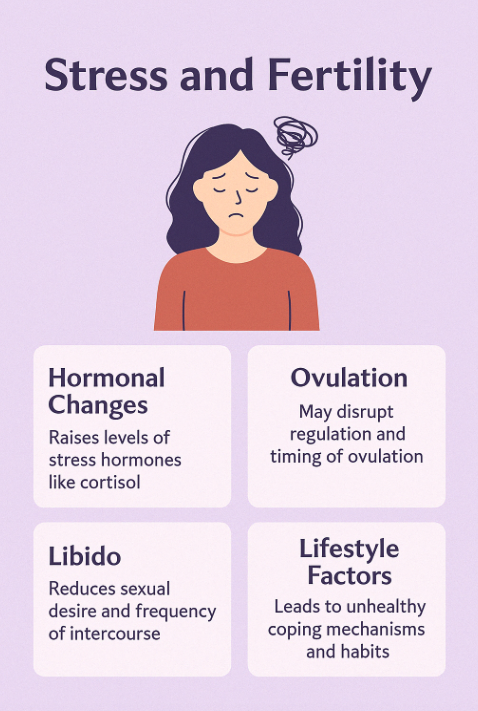Understanding the Link Between Mental Health and Fertility
May is Mental Health Awareness Month, making it the perfect time to talk about how mental and reproductive health are deeply connected. This blog explores the science and strategies for maintaining mental wellness when trying to conceive.
The Science of Stress and Fertility
Chronic stress can impact fertility by affecting hormone levels and menstrual cycles. Research shows that high cortisol levels may disrupt ovulation (Harvard Health). Additionally, stress in men has been linked to lower sperm quality.
Signs It’s Time to Prioritize Mental Health
- Feeling persistently anxious, hopeless, or emotionally numb
- Avoiding social situations or feeling triggered by pregnancy news
- Trouble sleeping or concentrating
Mind-Body Tools That Can Help
- Cognitive Behavioral Therapy (CBT): Proven effective for anxiety and depression related to infertility (NIH Study).
- Mindfulness Meditation: Practicing daily mindfulness has shown positive outcomes in emotional regulation and fertility treatment outcomes.
- Journaling & Gratitude: Keeping a gratitude journal can boost resilience during challenging times.
- Exercise & Nutrition: Regular movement and a balanced diet support both mental and reproductive health.

You’re Not Alone
Aspire Fertility offers a compassionate, whole-person approach to care. Visit Aspire Fertility to learn how we support your emotional and physical well-being throughout your journey.


















